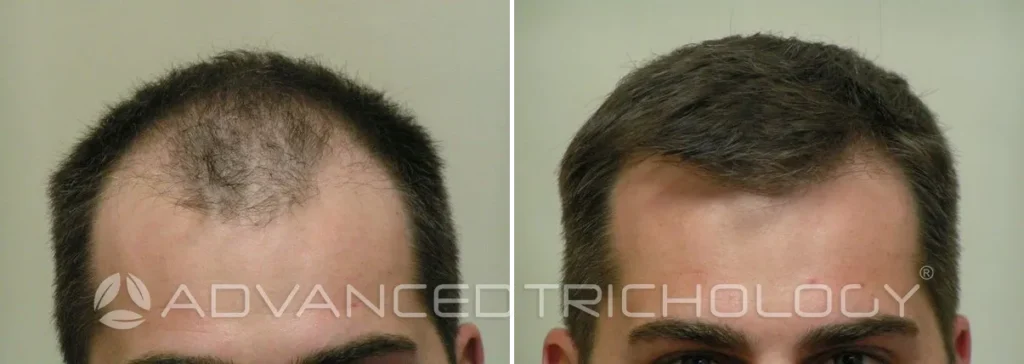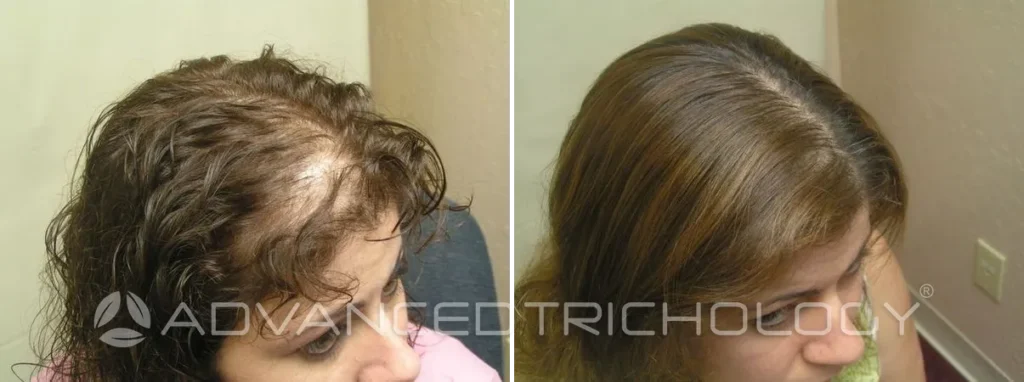Introduction
In the journey of mental health and well-being, medications like Xanax often play a crucial role in managing anxiety and panic disorders. However, a question that often arises is whether Xanax, a popular anti-anxiety medication, can lead to an unexpected side effect: hair loss. This article dives deep into this topic, exploring the potential connection between Xanax and hair loss, its impact on individuals, and possible solutions.
Effortless Hair Loss Prevention and Growth!
If you’re committed to preventing hair loss and promoting natural hair growth, look no further than Advanced Trichology. With a proven track record and a wide range of high-quality hair growth products suitable for both men and women, Advanced Trichology is a trusted name in the field. As an affiliate, I’ve had the privilege of witnessing the remarkable results their products can deliver. By using my unique affiliate link, you can access exclusive discounts on Advanced Trichology products through their website. It’s the perfect opportunity to take control of your hair’s health and vitality. Don’t let hair loss hold you back; start your journey towards healthier, fuller hair today!


Understanding Xanax and Its Purpose:
Xanax, generically known as alprazolam, belongs to the benzodiazepine class of drugs. It’s commonly prescribed to alleviate symptoms of anxiety, panic disorders, and sometimes even insomnia. The medication works by enhancing the effects of a neurotransmitter called gamma-aminobutyric acid (GABA), which helps calm the nervous system.
The Complexity of Hair Growth:
Before we delve into the relationship between Xanax and hair loss, it’s essential to comprehend the intricacies of hair growth. Each hair on your scalp undergoes a distinct life cycle involving growth, rest, and shedding phases. Normally, hair remains in the growth phase for two to eight years before transitioning into a resting phase lasting three to four months. After this period, it naturally falls out to make way for new hair.
Can Xanax Truly Lead to Hair Loss?
While Xanax primarily aims to alleviate anxiety, can it inadvertently lead to hair loss? Reports and studies on this topic offer varying insights. Hair loss can be a side effect of certain medications, but it’s relatively rare with Xanax. However, individual reactions to medications can differ significantly.
Exploring the Mechanism:
If Xanax is indeed linked to hair loss, how does it affect the hair follicles? Some suggest that it might be related to the medication’s impact on the nervous system. Xanax’s ability to calm nerves may indirectly influence the body’s stress response, which can affect hair health.
Stress and Hair Loss:
Stress, both physical and emotional, is a known factor in hair loss. Xanax is often prescribed to mitigate the effects of stress and anxiety, which can be associated with hair thinning or shedding. Paradoxically, Xanax’s role in reducing stress might contribute to healthier hair for some individuals.
The Role of Genetics:
It’s vital to remember that not all individuals react the same way to medications. Genetics plays a significant role in how a person responds to drugs. While some may experience hair changes while on Xanax, others may not notice any difference.
Possible Solutions and Management:
If you suspect that Xanax is causing hair loss or thinning, don’t panic. There are several strategies to consider:
- Consult Your Healthcare Provider: Your doctor can assess your situation, potentially adjust your medication, or explore alternative treatments.
- Supplement Your Diet: Ensure you have a balanced diet with essential vitamins and minerals that support hair health.
- Stress Management: Incorporate stress-reduction techniques into your daily routine, such as exercise, meditation, or yoga.
- Topical Treatments: Some individuals find success with topical solutions like minoxidil to promote hair regrowth.
Conclusion:
On the journey to mental well-being, the impact of medications like Xanax on physical health, including hair, is a valid concern. While hair loss is a potential side effect, it’s not a definitive outcome for everyone. Genetics, individual reactions, and overall health play pivotal roles. Consulting your healthcare provider and exploring holistic approaches to stress management and hair care can help maintain not only your mental health but also your physical well-being.
Disclaimer: The information provided in this article is for informational purposes only and should not be considered as medical advice. Always consult with a qualified healthcare professional before making any decisions regarding your health or treatments. For more information, please read our Medical Disclaimer.
Frequently Asked Questions:
While it’s not a myth, not everyone experiences hair loss due to Xanax. It’s a potential side effect, but it varies from person to person.
Xanax can indirectly lead to hair loss by alleviating anxiety and stress, which can, in turn, affect hair health, particularly through a condition called telogen effluvium.
Yes, there are alternative medications for managing anxiety and panic disorders that may have a lower risk of hair loss. Consult your healthcare provider for suitable options.
In most cases, the hair loss induced by Xanax is reversible once the medication is discontinued. Nevertheless, the process of hair regrowth is not immediate and can require a considerable amount of time.
If you suspect a link between Xanax and hair loss, consult your healthcare provider promptly. They can assess your situation, explore alternatives, and provide guidance on managing the side effects.




